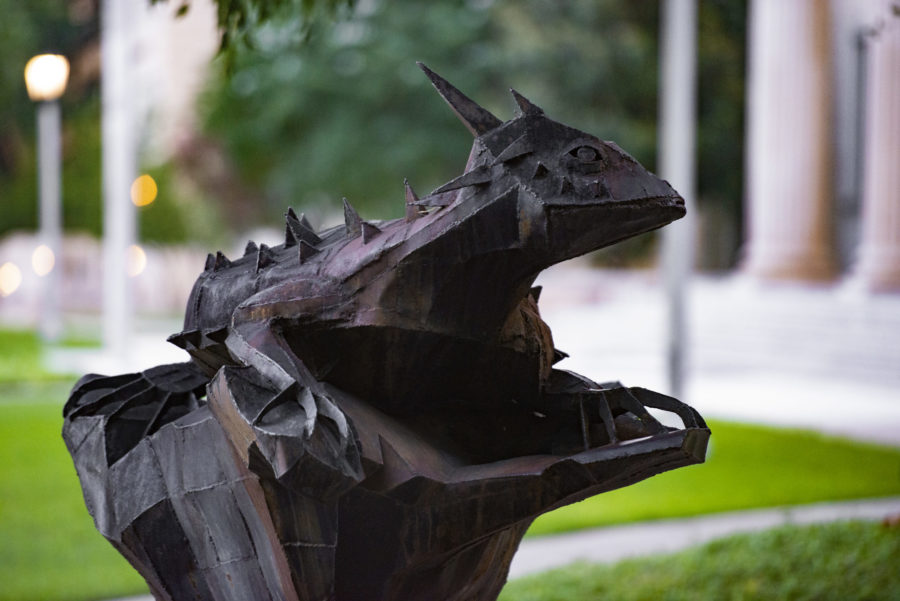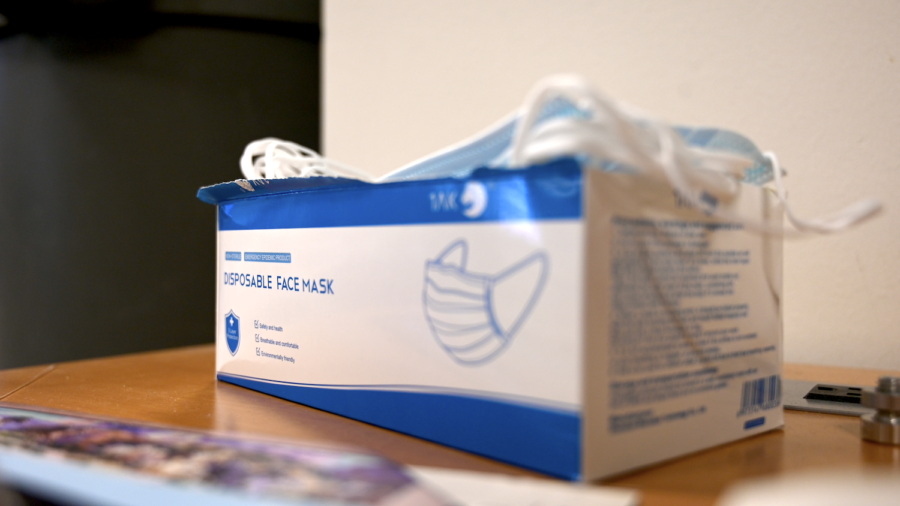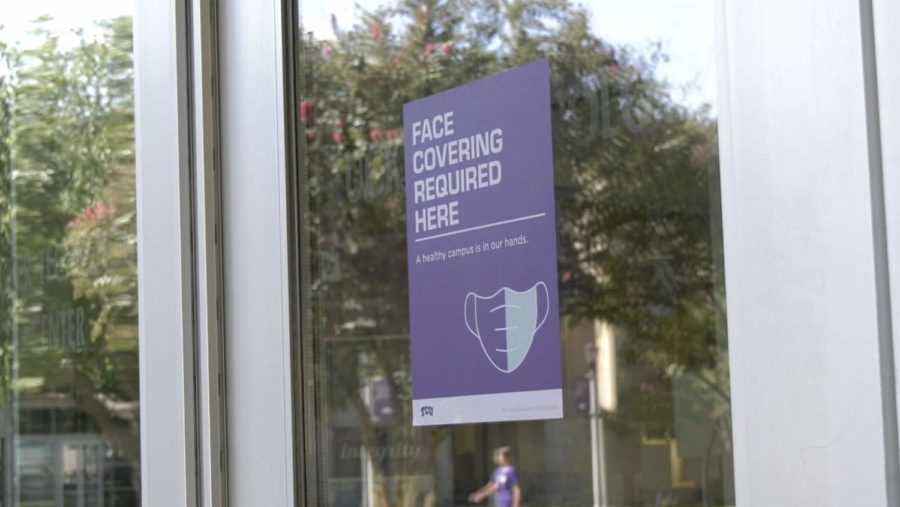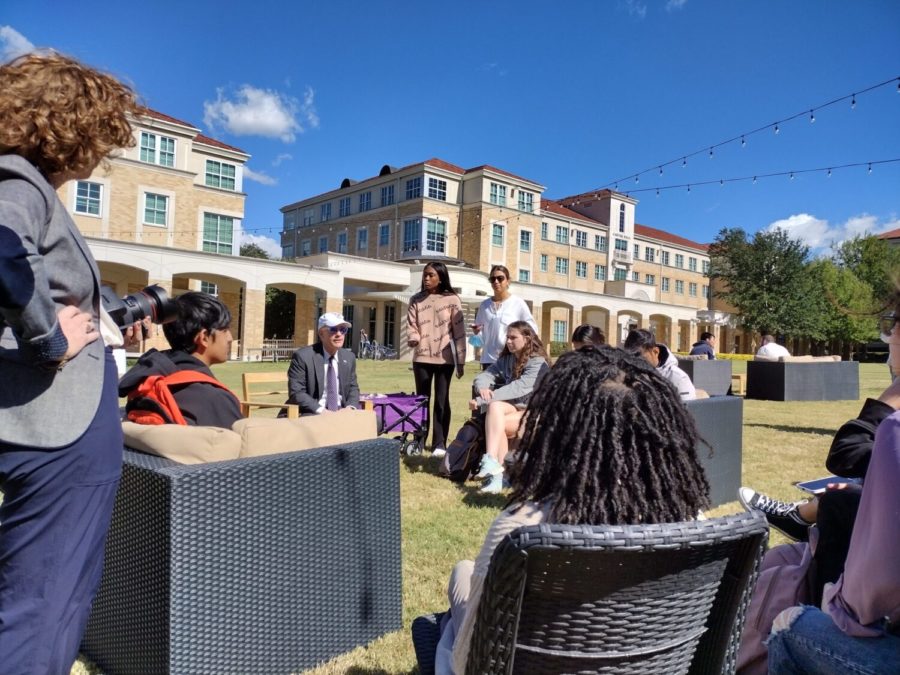In a town hall meeting Thursday, Chancellor Victor Boschini and other top officials talked about the financial status of the university and the upcoming academic year.
About 874 people attended the Zoom meeting, where staff answered pre-submitted questions from members of the TCU community.
Boschini opened the town hall by addressing the death of George Floyd and acknowledging the recent protests against police brutality, including the march he and others participated in Tuesday evening. He said people on campus are feeling frustrated and angry, and he said TCU has to work to overcome racism.
“And I think we’ve been doing a lot of work at TCU in these important areas,” he said. “And we’re just going to have to continue working on it, and we’re going to have to continue coming back each day with a fresh attitude and try to solve or conquer as many of these problems that we actually have control over on this 265 acres we call TCU.”
In particular, the chancellor said all faculty and staff are required to complete a diversity, equity and inclusion training for this fall.
Financial status
TCU has lost about $56 million since the move to distance learning last spring, said Brian Gutierrez, the vice chancellor for finance and administration.
He said the drop in revenue stems from losses in ticket sales, giving revenue and annual fund giving, refunds for housing and dining, and expenses associated with preparing for the pandemic.
Gutierrez said the university has “a wonderful manifestation of enrollment” for the fall, but will get more accurate data after the first opportunity to make payments and the enrollment level for the 12th day of class.
Another marker of TCU’s finances is furloughs and layoffs, which the university has so far avoided. Boschini said these are still a possibility, citing a move to distance learning in the fall as one potential drain on the university’s monetary resources.
“If we have to go online again, we’re going to have to give a steep discount to our entire student body, and that’s going to cost a lot of money,” Boschini said.
The Coronavirus Aid, Relief and Economic Security, or CARES Act, which passed earlier this spring, included about $14 billion for higher education. TCU was eligible to receive $5.6 million from the government; half would have been spent on the students, and the other half would have been allocated to cover on-campus expenses for faculty and staff.
However, there was public criticism about universities with large endowments receiving aid. Boschini said TCU was “shamed into not taking it” and noted other universities that did accept the money returned it “after they were ashamed.”
In response to concerns that the reductions to retirement benefits would make TCU less attractive to job candidates, Yohna Chambers, the chief human resources officer, said the university’s package is still competitive among peer and aspirant universities.
Safety precautions
The provost, Dr. Teresa Abi-Nader Dahlberg, said classroom spaces are being configured to allow 8 feet between the instructor and students and 6 feet distance among students.
In addition to distancing students, faculty and staff will also be asked to take other preventive measures. Faculty and staff will be issued a purple face covering, and faculty will also be given a plastic shield if they don’t want to lecture through a mask.
Face coverings will be required in classrooms and encouraged around campus, said Kathy Cavins-Tull, the vice chancellor for student affairs.
Students will also be given a bottle of hand sanitizer.
In addition, though nontraditional spaces such as ballrooms may be used as classrooms, Cavins-Tull said ADA access is a priority.
Any students who test positive for COVID-19 will have to self-isolate; TCU has identified space to quarantine in some residence halls and isolation pods, Cavins-Tull said.
The Brown-Lupton Health Center has facilities to test for the virus in about 45 minutes, and contact tracers will be working to identify with whom people who test positive have interacted.
Academic calendar
Instructors are free to hold accountable students who do not attend the first week of classes, which was moved up, “the normal way,” Dahlberg said.
Cavins-Tull said students can remain in the dorms past Nov. 24, the last day of finals for the semester, and can leave their nonessential items.










